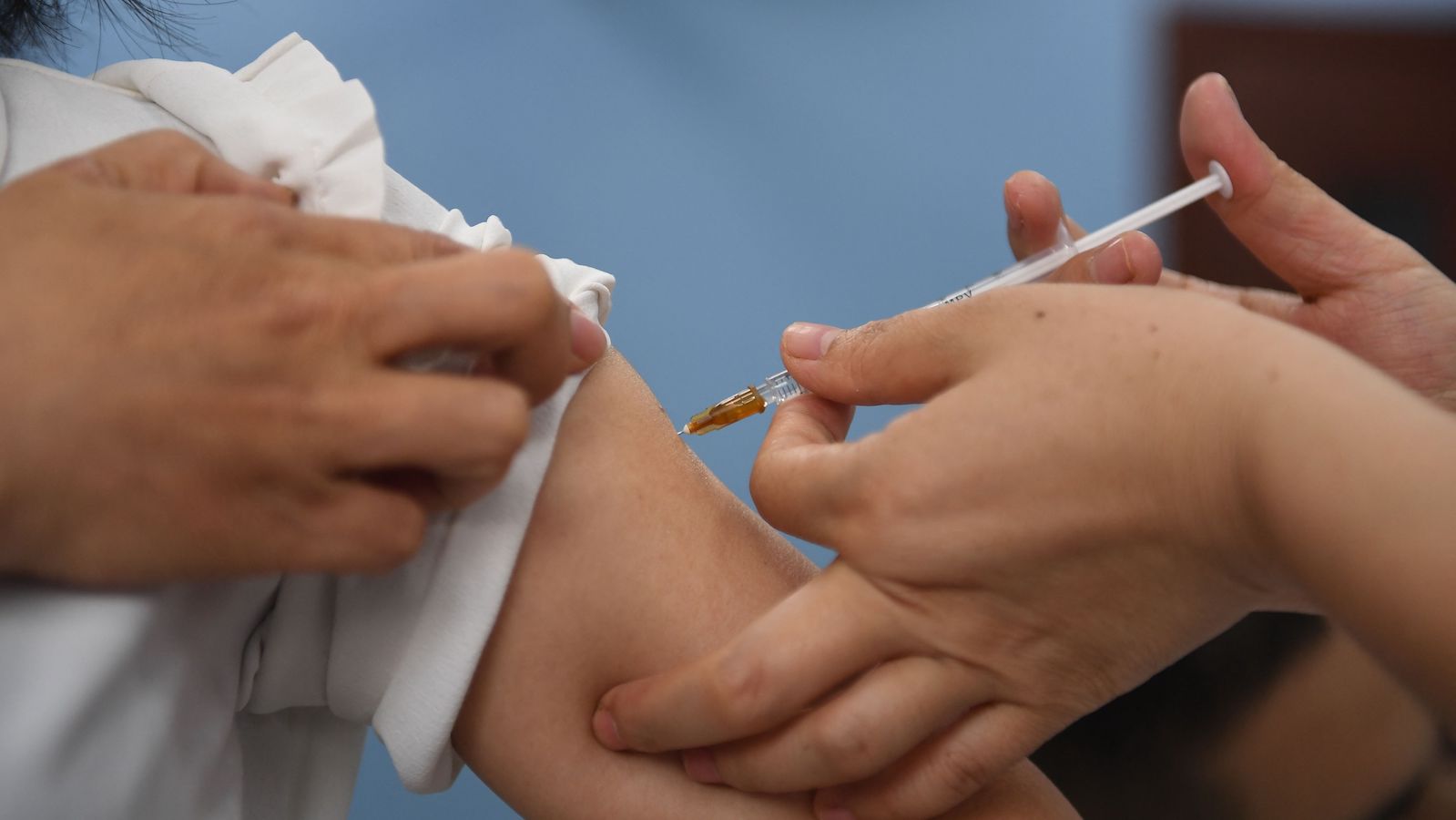Have you been vaccinated?
This is how immunization progresses in South America 1:02
(CNN Spanish) -
The inequality in access to vaccines against covid-19 increases every day.
The devastating second wave of infections in India exacerbated the situation by not being able to deliver millions of doses to Covax, the WHO initiative for the distribution of vaccines to developing countries.
Dr. Huerta explains the crisis in access to vaccines.
You can listen to this episode on Spotify or your favorite podcast platform or read the transcript below.
Hello, I am Dr. Elmer Huerta and this is your daily dose of information about the new coronavirus.
Information that we hope will be useful to take care of your health and that of your family.
Undoubtedly, inequality in the distribution of vaccines was an issue that was on the horizon, even before vaccination programs began.
advertising
As we heard in the episode of December 17, an article in The New York Times of those days made an interesting review of the subject and concluded that because the rich countries would have more than 50% of the vaccines produced in the world towards the end By 2021, they could vaccinate their entire population more than once.
And that projection has been fulfilled.
Rich countries and vaccines against covid-19
As shown in a recent BBC online article:
Canada ordered 338 million vaccines, enough to vaccinate its entire population five times,
The UK ordered so many doses to vaccinate 3.6 times its population.
In descending order they follow:
The European Union with 2.7,
Australia with 2.5
And the United States with enough doses to vaccinate its entire population twice.
The reason for this inequality is that rich countries gambled early and injected billions of dollars into the development of vaccines, on the condition that they would be the first to get the vaccines when they passed phase 3 studies.
But being - at the time of writing this episode - the fifth month of the year, the situation has worsened for poor countries.
Poor countries and vaccines
That's because the Covax program - a global initiative led by the WHO, the Vaccine Alliance (GAVI) and the Coalition for Epidemic Preparedness Innovations (CEPI) - is in crisis because it does not have the necessary vaccines to distribute to the low-income countries.
Covax's goal was to distribute 2 billion doses of covid-19 vaccines by the end of 2021, a figure that seems considerable, but would only be enough to vaccinate a maximum of 20% of the population in those countries.
The fundamental premise of Covax is that no country should receive vaccines for more than 20% of its inhabitants without first having all countries vaccinated at least 20% of its population.
Sadly, so far, Covax has only managed to ship around 60 million doses to 122 participating countries.
India and its role in the crisis
The crisis has been exacerbated because the Serum Institute of India, the world's largest vaccine manufacturer and which had committed to providing 1 billion doses to Covax, failed to ship the promised vaccines during March, April and May, so it is feared that by the end of June the deficit will reach 190 million doses.
The reason for this non-delivery is - as we saw in the April 29 episode - that the pandemic has hit India so harshly that its authorities decided to use the vaccines manufactured there for their own population.
Faced with this serious situation, Unicef, the organization in charge of logistics for the delivery of Covax vaccines, has asked the G7 countries - which will meet in June in London - to donate the excess vaccines they have to the initiative. .
Donations from rich countries
The G7 member countries: Canada, France, Germany, Italy, Japan, the United Kingdom and the United States could donate - according to Unicef - 153 million doses of vaccines to the Covax fund.
In this regard, the Prime Minister of Great Britain, Boris Johnson, promised to donate most of the surplus vaccines to poor countries, but that promise has not been fulfilled.
Similarly, on May 17, United States President Joe Biden announced that, in addition to the 60 million doses of the AstraZeneca vaccine that he promised to share with the rest of the world, by July 4, for June would add another 20 million doses of the vaccines from Pfizer / BioNTech, Moderna, Johnson & Johnson and AstraZeneca.
Shipment of AstraZeneca vaccines is subject to approval by US federal regulators.
There is no doubt that international collaboration is essential to get the largest number of people vaccinated in the world.
According to the BBC, seven countries in Africa, for example, including Botswana, Ghana, Rwanda and Senegal, have used almost 100% of their Covax doses.
While Kenya and Malawi have used almost 90%.
Cape Verde and Gambia have already used 60% of their doses.
Many observers say that it is unfair that rich countries have so many vaccines that they have started vaccinating their low-risk adolescents, while some poor countries do not have vaccines or even their health workers or their high-risk populations.
Do you have questions about the coronavirus?
Send me your questions on Twitter, we will try to answer them in our next episodes.
You can find me at @DrHuerta.
If you think this podcast is useful, help others find it by rating and reviewing it on your favorite podcast app.
We'll be back tomorrow so be sure to subscribe to get the latest episode on your account.
And for the most up-to-date information you can always head to CNNEspanol.com.
Thanks for your attention.
If you have any questions you can send them to Dr. Elmer Huerta through Twitter. You can also head over to CNNE.com/coronaviruspodcast for all episodes of our “Coronavirus: Reality vs. Reality” podcast. fiction".
coronavirus vaccine against covid-19

